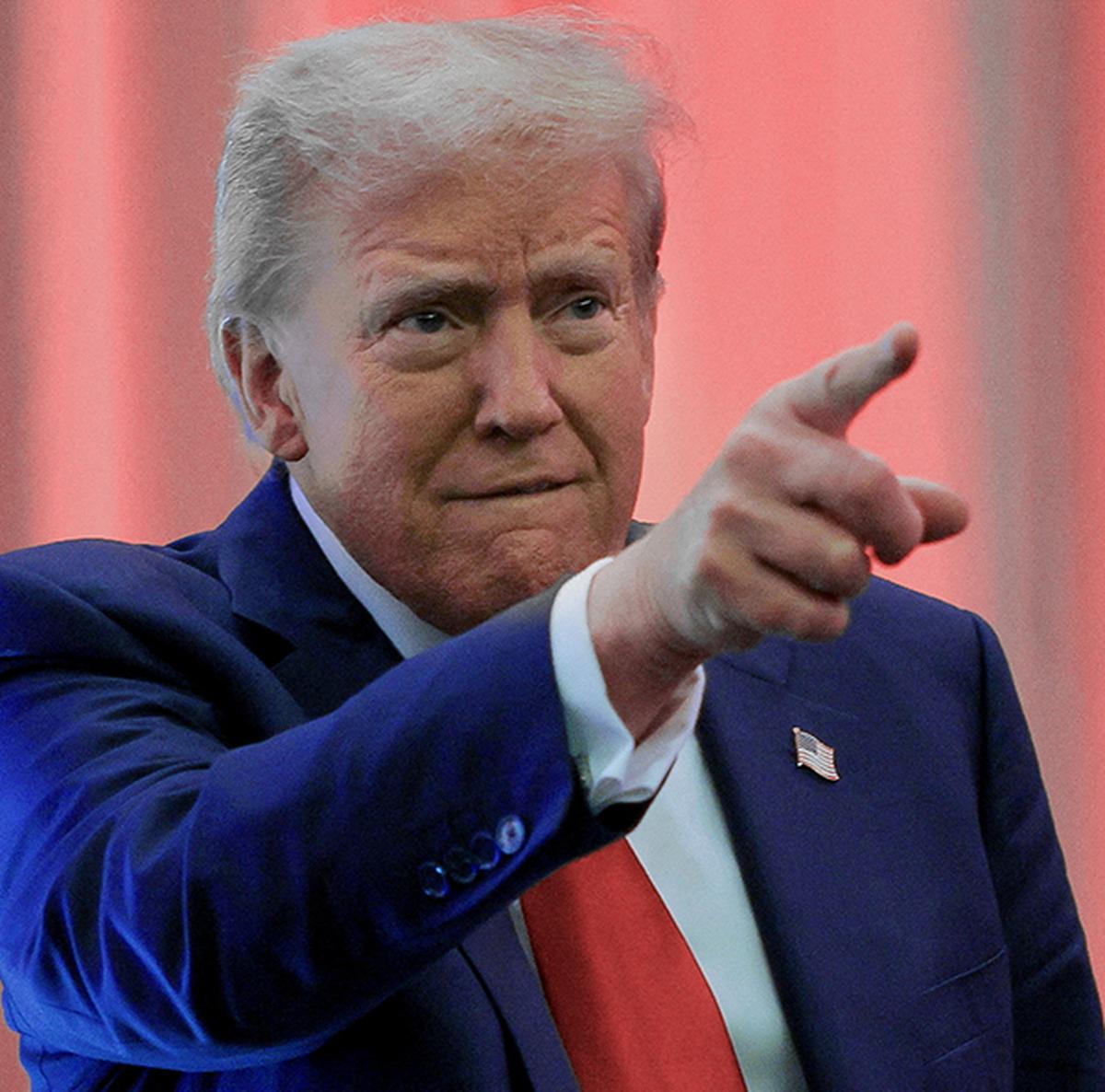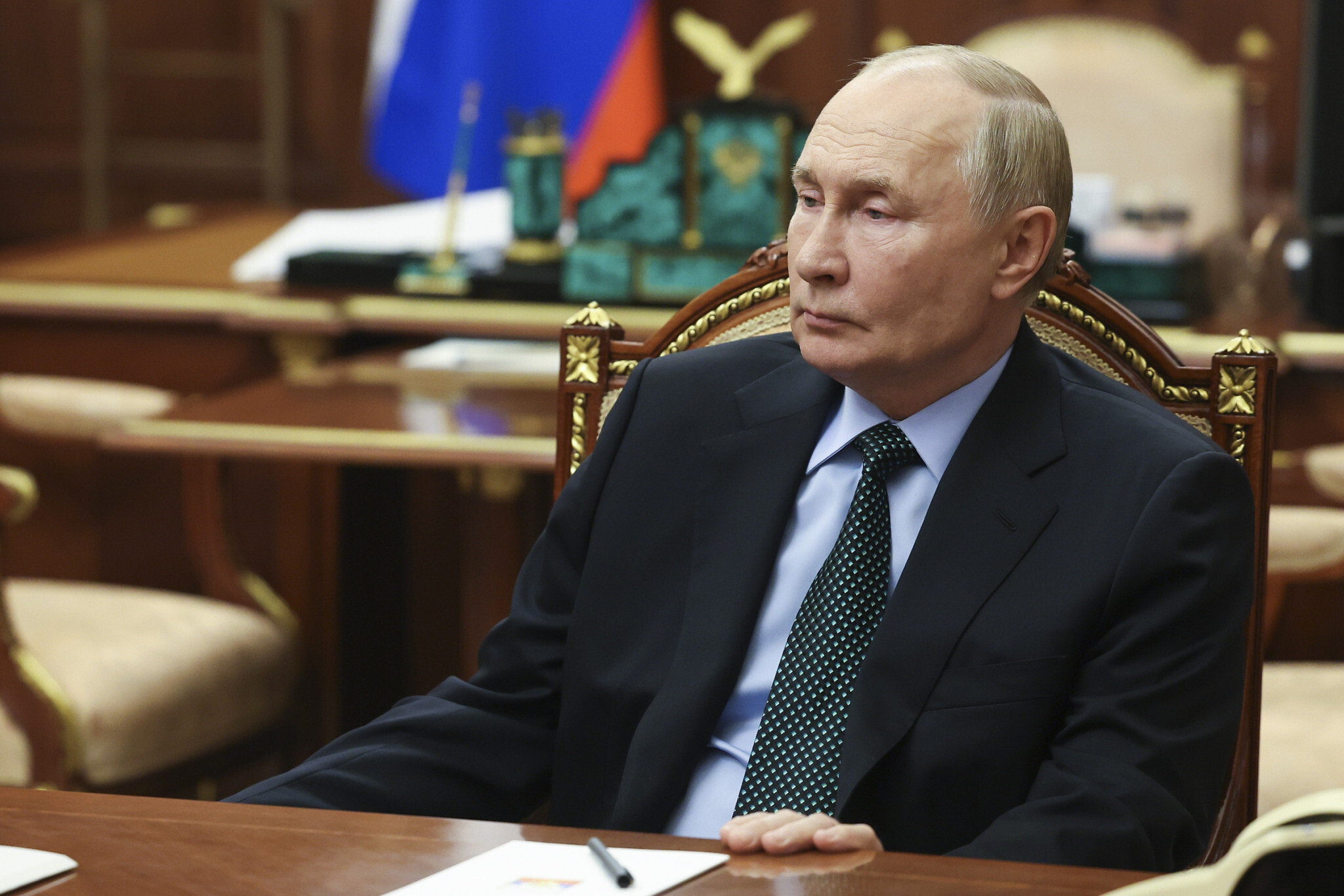U.S. President Joe Biden made a fleeting appearance on Sunday in the dense heart of the Amazon rainforest, where the hum of nature’s rhythm drowns out human noise.
The setting—a press conference in Manaus, Brazil—was meant to spotlight a noble cause: the reforestation of the Amazon. However, after brief remarks, Biden’s abrupt retreat into the trees raised more questions than answers. In stark juxtaposition, events unfolding on the world stage demand immediate scrutiny.
Chief among them: the United States’ green light for Ukraine to use long-range American missiles to strike deep into Russian territory—a seismic escalation in the ongoing conflict.
While the Amazon’s vibrant ecosystem holds global importance, the president’s silence on this major policy shift left critics and allies grappling with its implications.
From Washington to Moscow, and Kyiv to Pyongyang, the decision to provide Ukraine with Army Tactical Missile Systems (ATACMS) has sent shockwaves, intensifying fears of a wider, potentially catastrophic war.
An Escalation Long Forewarned
The U.S. decision to permit Ukraine to target Russian territories with American-made missiles has drawn praise from Kyiv and Western allies advocating for Ukraine’s sovereignty. Ukrainian President Volodymyr Zelenskyy, in his characteristic cryptic tone, suggested that “missiles will speak for themselves.” The weapons—capable of striking targets up to 190 miles away—offer Ukraine a formidable advantage in countering Russian aggression. This move comes after months of lobbying by Ukrainian officials, who view the long-range capabilities as essential to deterring Russian advances and reclaiming occupied territory.
Yet, the timing of the announcement—ahead of the G20 summit in Rio de Janeiro and on the brink of a U.S. presidential transition—raises questions. Outgoing presidents often tread cautiously on matters of war and peace. Biden, however, appears to be doubling down on support for Ukraine, even as his political adversaries and a significant portion of the U.S. electorate express fatigue over continued military aid.
Russia’s response has been predictably furious. Pro-Kremlin voices have warned that this decision represents NATO’s “direct participation” in the war. President Vladimir Putin, though silent so far, has previously signaled that such actions could alter the war’s trajectory and even prompt changes to Russia’s nuclear doctrine.
The World on Edge
The fallout from Biden’s missile decision has been swift. Russian officials labeled it an “unprecedented provocation,” with some likening it to a march toward World War III. Russian MP Leonid Slutsky predicted “serious consequences,” while state media called the move “predictable” but deeply destabilizing.
Western analysts, meanwhile, see this as a calculated risk by the Biden administration. By enabling Ukraine to hit targets in Russia, the U.S. aims to strain Moscow’s resources, disrupt its logistics, and force a reassessment of its strategies. However, the policy shift also opens the door to unpredictable escalation. Putin has hinted that Russia might respond by arming adversaries of the West with similarly potent weapons, a chilling reminder of the global stakes.

Trump’s Looming Shadow
Adding complexity to an already volatile equation is the specter of Donald Trump’s impending return to the White House. The president-elect has repeatedly criticized U.S. military aid to Ukraine, vowing to limit support and prioritize negotiations. Trump’s stance aligns with the isolationist tendencies of a vocal segment of his base, but it has also emboldened adversaries like Russia, which may see his presidency as an opportunity to push for favorable terms.
In Russia, Trump’s victory has inspired cautious optimism. The Kremlin perceives his less hawkish stance as a potential shift in U.S. foreign policy. This has fueled speculation that Moscow might adopt a wait-and-see approach before retaliating against Biden’s missile gambit, betting that the incoming administration could offer a diplomatic off-ramp.
The Amazon Distraction
Against this backdrop, Biden’s Amazon appearance stands out for its surreal detachment. Announcing a multimillion-dollar initiative to reforest one of the planet’s most critical ecosystems is undoubtedly significant, yet the timing could not have been more jarring. As global tensions reach a fever pitch, critics lambasted Biden for sidestepping the media and failing to address a decision with far-reaching consequences.
The imagery of the president “disappearing into the trees,” as described by Republican commentators, has become a metaphor for perceived leadership voids. While environmental stewardship is a cornerstone of Biden’s legacy, the juxtaposition of this announcement with the escalation in Ukraine invites scrutiny. Can the leader of the free world afford to prioritize the long-term fight against climate change while a hot war risks spiraling out of control?
A Precarious Balance
The Biden administration’s decision reflects the delicate balance it seeks to strike. On one hand, supporting Ukraine bolsters international norms against territorial aggression and underscores U.S. commitments to its allies. On the other, it risks provoking a nuclear-armed adversary and fueling global instability.
The stakes are profound. Putin has previously suggested that allowing Ukraine to strike deep into Russian territory would cross a red line, forcing Moscow to consider drastic measures. These include bolstering air defenses, intensifying cyberattacks, and even supplying advanced weaponry to Western adversaries such as Iran, North Korea, or Houthi rebels. Alexander Lukashenko, Belarus’s authoritarian leader and a close Putin ally, has already warned of potential retaliatory scenarios, including targeting Western naval assets.

A Fractured World Order
Beyond the immediate conflict, the Biden administration’s move underscores deeper fissures in the global order. The Ukraine war has exposed vulnerabilities in international institutions like the United Nations, whose mechanisms for conflict resolution have been paralyzed by great power rivalries. Meanwhile, the G20 summit, which convened in Rio amid these tensions, has struggled to project unity. Russia’s absence from the gathering highlights the deep divisions among member states.
In Europe, leaders such as German Chancellor Olaf Scholz have sought dialogue with Putin, reflecting divisions within NATO about the best path forward. Meanwhile, the U.K. and other hawkish members continue to press for a robust response to Russian aggression. The result is a fragmented Western alliance, even as Ukraine’s fate hangs in the balance.
The Road Ahead
For Biden, the Amazon rainforest may offer a momentary reprieve from the political maelstrom, but the world awaits decisive leadership. How the U.S. navigates the next two months will shape not only the trajectory of the Ukraine conflict but also the contours of global security in the coming decade.
As Biden’s administration draws to a close, his actions suggest a desire to cement his legacy as a defender of democracy and the rules-based order. Yet, the risks are undeniable. Escalating military aid to Ukraine could backfire, triggering a broader war and leaving Biden’s successor to manage the fallout.
For now, the missiles are poised, and the Amazon stands as a symbol of both hope and ambiguity. In a world teetering between renewal and destruction, Biden’s silence resonates as a call to action—or a harbinger of chaos.



